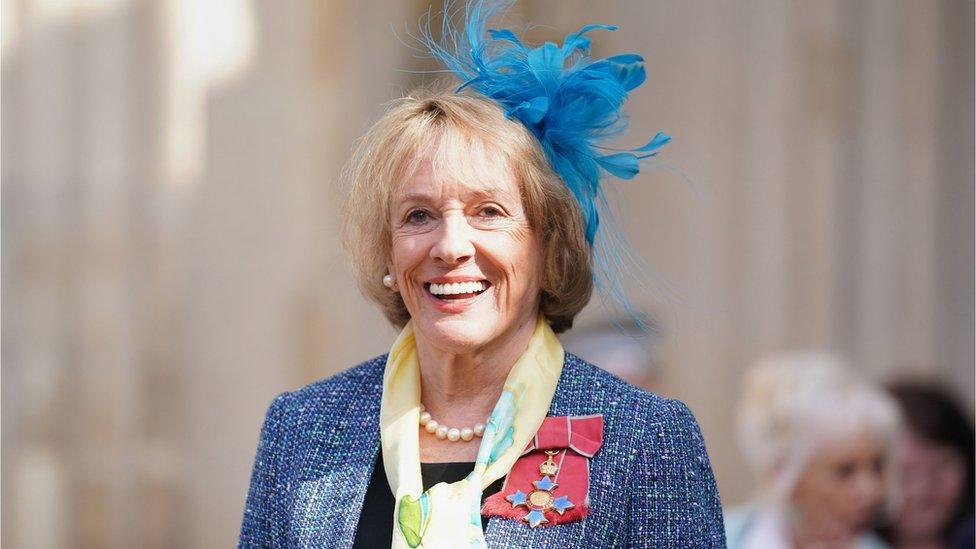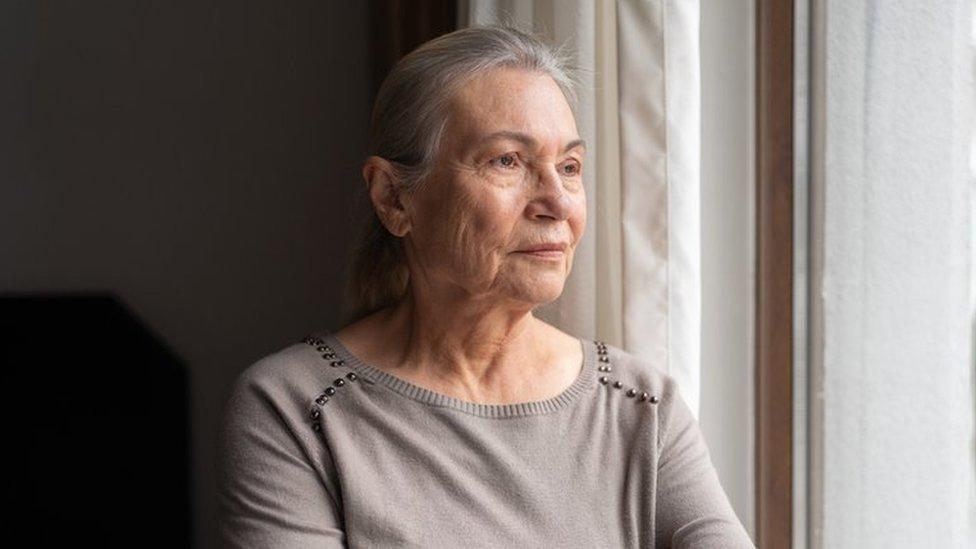Esther Rantzen begs MPs to attend assisted dying debate
- Published

Broadcaster Esther Rantzen has said she "begs" MPs to attend a debate in Parliament on assisted dying.
It was triggered after over 200,000 people signed a petition calling for dying people to be able to ask for medical assistance to end their lives.
MPs have begun the debate, but there will not be a binding vote.
Dame Esther is terminally ill with lung cancer and last year revealed she had joined Dignitas, the assisted dying clinic in Switzerland.
Speaking to the BBC's Today programme, she said an "amazing" new drug had delayed the spread of the cancer but that her time was "very limited".
She said a change in the law "would mean that I could look forward in confidence to a death which is pain-free surrounded by people I love".
"The only other way of having a pain-free death to look forward to in confidence is to go to Dignitas in Switzerland without my family - because if my family go with me they could be investigated by the police for killing me, or pressuring me to die."
The Childline founder said that under the change she is backing, doctors would determine whether a terminally ill person was being pressured into seeking help to end their own life.
Dame Esther said that she had seen her husband, her mother and her dog die and that it was her dog's death which she "envied".
"Isn't it typically British that we give the pets we love a pain-free, dignified, private death but we can't offer it to the people we love."
Speaking to the same programme, past president of the Association for Palliative Medicine Amy Profitt said people on both sides of the debate came from "a position of compassion - we all want to relieve suffering".
She expressed concern about the proposal being debated saying that as a doctor she was not trained in law and could not "determine coercion".
She said there could be another model which would involve lawyers and psychiatrists, adding: "If we are going to legalise the system, it can't be in the NHS. It is deeply dangerous in health care and could be seen as cost-saving for the government."
The petition being debated in Parliament urges the government to give MPs a vote on the subject and argues that "terminally ill people who are mentally sound and near the end of their lives should not suffer unbearably against their will".
Dr Gordon Macdonald, chief executive of the campaign group Care Not Killing, said: "Instead of discussing this dangerous and ideological policy, we should be talking about how to fix the UK's broken and patchy palliative care system so everyone can have a dignified death."
Responding to the petition,, external the Ministry of Justice said: "It remains the government's view that any change to the law in this sensitive area is a matter for Parliament to decide and an issue of conscience for individual parliamentarians rather than one for government policy.
"If the will of Parliament is that the law on assisting suicide should change, the government would not stand in its way, but would seek to ensure that the law could be enforced in the way that Parliament intended."
MPs last voted on the subject in 2015, when Labour MP Rob Marris introduced a bill which people in England and Wales with fewer than six months to live could be prescribed a lethal dose of drugs, which they would have to take themselves.
The bill was defeated by 330 votes to 118.
In recent months, new assisted dying laws have been proposed in Jersey and the Isle of Man.
At the end of last year, Labour leader Sir Keir Starmer said there were "grounds for changing the law" on assisted dying but that MPs should have a free vote on the subject - meaning they should not be compelled to vote a particular way by their party's leadership.
Assisted suicide is banned in England, Wales and Northern Ireland, with a maximum prison sentence of 14 years. While there is no specific offence of assisted suicide in Scotland, euthanasia is illegal and can be prosecuted as murder or culpable homicide.
Related topics
- Published19 December 2023

- Published20 December 2023

